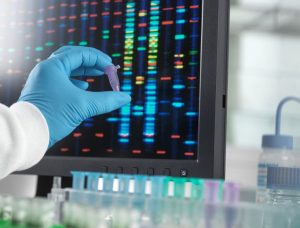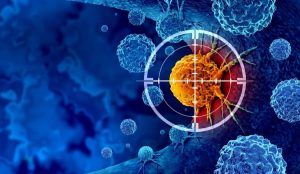
Recognizing Cancer Misinformation: Expert Insights from 2 RCCA Oncologists
“Consider the source.” It’s good advice for dealing with the sting of criticism or the allure of gossip, but two oncologists say it’s even better
HIPAA Alert: Potential Data Breach Learn More
Questions on Oncology, Hematology and/or Infusion Clinical Services due to COVID-19 Crisis – CALL 833-698-1623
Important Information for Our Patients Regarding the Coronavirus.
RCCA Providing Area Cancer Patients with Access to Care During Coronavirus Outbreak
RCCA Offering Patients Virtual Visits During Coronavirus Pandemic
Through its participation in the new ‘Time to Screen’ national awareness campaign, Regional Cancer Care Associates (RCCA) hopes to remind community members of the importance of regular cancer screenings
In addition to the far-reaching havoc the pandemic wreaked on society and the economy, another unfortunate fallout of the unprecedented COVID-19 health crisis has been a decline in routine health screenings nationwide.
According to the Centers for Disease Control (CDC), the widespread request for individuals to shelter in place during the pandemic combined with people’s fears of contracting COVID-19 in hospitals, doctor’s offices and other health care facilities contributed to precipitous declines in routine screening exams across many cancer modalities — a trend which still persists today. But thanks to a national public awareness campaign called ‘Time to Screen’ that’s being supported by a broad range of leading cancer care practitioners and stakeholders, including Hackensack-based Regional Cancer Care Associates (RCCA), community members will be reminded of the importance and value of life-saving screening exams, preventative care and early intervention.
A Concerning Trend
A recent study by Avalere Health confirmed that breast, colon, prostate and lung cancer screenings nationwide have declined by anywhere from 56% to 85% over the past year — a reality which concerns cancer care providers.
“While no one could have predicted the pandemic, we certainly couldn’t have imagined how adversely it would impact everyone’s health care routine,” said Terrill Jordan, president and chief executive officer of RCCA, a leading provider of individualized and highly compassionate care for cancer and blood disorders, with more than 80 cancer specialists practicing at 20-plus care centers throughout New Jersey, Connecticut, Massachusetts, and the Washington, D.C., area.
“Many patients refrained from seeing their primary care physicians or going to the hospital and the act of missing those appointments can have far-reaching impacts,” Jordan said. Among them, “when patients do return for screening again, we find a higher incidence of more advanced cancer and other co-morbidities. We often say that ‘cancer doesn’t wait’ — as a result, and especially during the pandemic, it’s more important than ever to pursue regular screenings and identify any conditions early on so that in the event of a cancer diagnosis, treatment options can be less aggressive and outcomes more favorable.”
According to Jordan, “our RCCA team meets with a number of community cancer practices regularly as members of the Community Oncology Alliance (COA), a 20-year-old nonprofit organization that advocates on behalf of clinical physicians and their patients. At recent meetings, members nationwide expressed dismay over the same thing — fewer patients getting screened — because they knew that it would ultimately lead to an increase in patients showing up with more advanced disease, which was the exact trend seen after the financial crisis of 2008, when a number of patients opted to put off regular screenings,” he said. “While all of our physicians are hopelessly optimistic, they were still quite concerned about the status of their patients and wanted to do something more to get the message out about the importance of regular screenings.”
That desire led RCCA to proudly join forces with COA’s ‘Time to Screen’ campaign.
A Proactive Approach
Launched on July 22, 2021, the ‘Time to Screen’ campaign will involve a year-long series of press releases, public service announcements (TV, radio and print), and advertisements, as well as endorsement by two-time Grammy award winner and “Godmother of Soul” Patti LaBelle, a vocal advocate of preventative screenings following the loss of all three of her sisters to cancer. In addition to a dedicated toll-free hotline and website, the campaign will also offer a Practice Toolkit with resources to help clinical teams get involved, as well as a Stakeholder Toolkit enabling employers and others to join the campaign and help promote the important message about cancer screenings.
“Through the ‘Time to Screen’ campaign, we hope to see patients restarting their regular screenings and re-engaging with their other physician specialists to ensure that if there’s a chance they may have cancer, it’s identified and they’re referred to a community oncologist as soon as possible, because time is of the essence,” Jordan said. “For those individuals who don’t currently have a routine for screening, we hope the campaign can be a wake-up call that motivates them to embrace regular mammograms, colonoscopies, etc. in the best interests of their own health care.”
Campaign advocate Frederick Smith, Medical Oncologist at RCCA in Chevy Chase, couldn’t agree more with the message.
“The need for people to resume regular screenings again is very important, particularly now that things are slowly opening up,” Dr. Smith said. “The dramatic events of COVID understandably led to a re-orienting of priorities, but now the priority should slowly flow back to the need to address personal health issues.
“From colonoscopies which identify pre-cancerous polyps and prevent the development of colon cancer to highly-sensitive CT scans which can now detect even early lung cancer and improve survival, strongly persuasive evidence shows that routine screening exams prevent the risk of more advanced disease and lead to a defined decline in mortality from a range of cancers,” Dr. Smith said. “Over the decades, people had gotten into a good routine of annual mammograms for appropriate age groups, periodic colonoscopies, general check-ups and CT scans for individuals at risk for lung cancer, and other important screenings and we need to get back to that.
“Though we were all caught off guard by the pandemic and it stunned, shocked, and frightened us, we have to continue to be prudent and continue the preventative health practices that have led to dramatic improvements in cancer survivorship,” Dr. Smith continued. “Screening facilities are now open with effective precautions taken and it’s time for the general population to get back to being self-aware and proactive about the healthy routines that are in their best interests.”
Jordan stressed the importance of seeing a physician and emphasized the strict precautions RCCA has been taking.
“At RCCA, like other community clinics, we take great pride in having stayed open for our patients through the pandemic and doing everything we could to put heightened infection control measures into place across our facilities,” Jordan said. “Patients who are making a choice between seeing their primary care physician, oncologist, or other specialist or avoiding COVID should prioritize seeing their doctor, because we’ve taken appropriate measures to address COVID exposure in our clinics and have created a safe environment in our facilities.
“As people seek to get back to some semblance of normal life, we hope that part of that will include regular screenings,” Jordan said.
Call 1-855-53-SCREEN or visit www.TimetoScreen.org to learn about the benefits of screening and to find your convenient screening location.
For more information or to schedule an appointment,
call 844-346-7222. You can also schedule an appointment by calling the RCCA location nearest you.

“Consider the source.” It’s good advice for dealing with the sting of criticism or the allure of gossip, but two oncologists say it’s even better

Biomarker testing is the evaluation of samples of a patient’s tumor, blood, or both to identify the genetic mutations responsible for the development of cancer,

Medical research has made tremendous strides in improving how oncologists understand and treat cancer. One of the most exciting developments is the use of radiopharmaceuticals.

Regional Cancer Care Associates is one of fewer than 200 medical practices in the country selected to participate in the Oncology Care Model (OCM); a recent Medicare initiative aimed at improving care coordination and access to and quality of care for Medicare beneficiaries undergoing chemotherapy treatment.